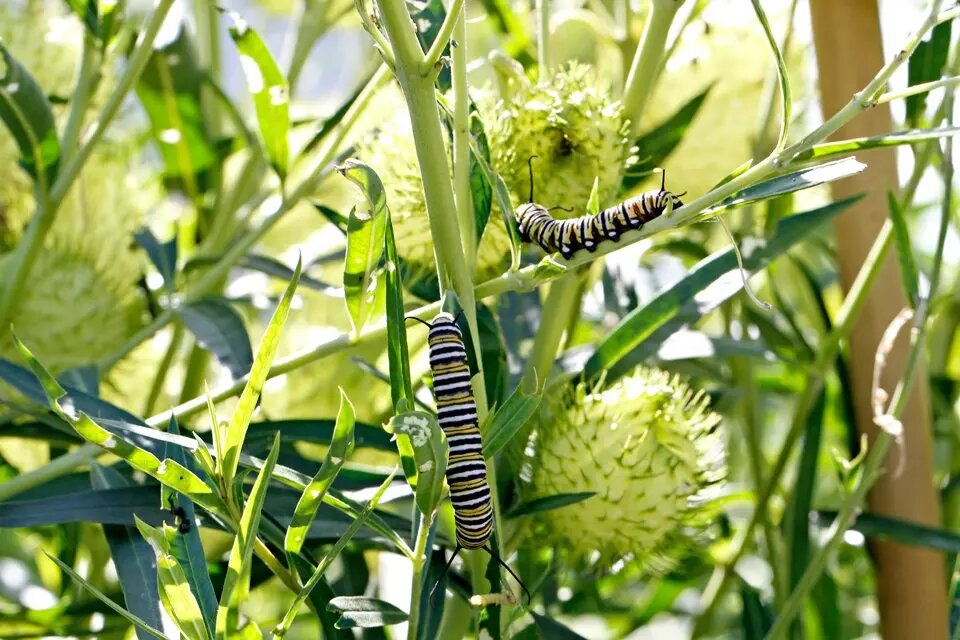The absence of caterpillars is most likely caused by predation. The main predators of monarch caterpillars are wasps, and may be the key reason your swan plants are dying. Luckily, there are some natural ways to ensure wasps don’t come back to feed on the caterpillars which reside in your garden.
Natural Ways to Removing Wasps
Using pesticides to control wasps (such as yellowjackets) can be effective, but these chemicals are harmful to the environment. Careless use of pesticides can also pose risks to the person applying the chemicals.
There are many recommendations for homemade wasp repellent, most of which include dish soap. However, because wasps can be aggressive, an attack from a wasp swarm is potentially fatal. For this reason, never spray anything on wasps directly.
Instead, consider using these on surfaces around your home:
Peppermint oil:
Mix equal parts peppermint essential oil and water, and apply a small amount to hair, arms, ankles, socks, etc. Or add a bit of dish soap as a spray repellant.
Chilli peppers:
Boil two cups of chopped chilli peppers in two cups of water for two minutes. Allow the mixture to cool and use as a spray repellent on surfaces.
Essential oil blend:
Add a few drops each of peppermint oil, clove oil, geranium, lemongrass oil, and a few squirts of dish soap. Spray on surfaces.
There are also many plants that are natural repellents to wasps, which we can plant near our swan plants.
Basil:
Basil is a great choice for your garden that doubles as a kitchen resource and a pest repellent. As humans, we may enjoy the aroma of basil in a rich tomato sauce, but bees and wasps are put off by the fragrance. Basil needs heat to grow effectively and prefers a location that receives 6-8 hours of full sun each day. Though the soil should remain moist, it must be well-drained to avoid drowning the basil plants and/or causing root rot.
Mint:
A popular scent in the human world, mint is not well-liked by stinging pests. Mint plants can tolerate some shade but be sure to keep an eye on them. Their rapid growth rate can cause them to quickly take over a garden.
Citronella:
Citronella is best known for its ability to deter mosquitoes, but its pervasive smell can be offensive to wasps as well. It can be grown inside or outside but prefers at least six hours of sunlight whether it is by a window or outside in the sun. The citronella plant’s soil should remain well-drained.
These natural repellents should help to ensure a flourish swan plant in your garden, and allowing caterpillars to reach their beautiful mature form of the monarch butterfly.


